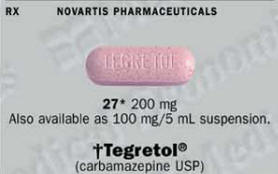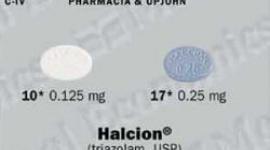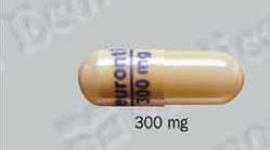Tegretol (Carbamazepine) Patient Information
Find out why Tegretol is prescribed, side effects of Tegretol, Tegretol warnings, effects of Tegretol during pregnancy, more - in plain English.
Generic name: Carbamazepine
Other brand names: Carbatrol, Epitol, Tegretol-XR
Pronounced: TEG-re-tawl
Tegretol (carbamazepine) Full Prescribing Information
Carbatrol (carbamazepine) Full Prescribing Information
Why is Tegretol prescribed?
Tegretol is used in the treatment of seizure disorders, including certain types of epilepsy. It is also prescribed for trigeminal neuralgia (severe pain in the jaws) and pain in the tongue and throat.
In addition, some doctors use Tegretol to treat alcohol withdrawal, cocaine addiction, and emotional disorders such as depression and abnormally aggressive behavior. The drug is also used to treat migraine headache and "restless legs."
Most important fact about Tegretol
There are potentially dangerous side effects associated with the use of Tegretol. If you experience symptoms such as fever, sore throat, rash, ulcers in the mouth, easy bruising, or reddish or purplish spots on the skin, you should notify your doctor immediately. These symptoms could be signs of a blood disorder brought on by the drug.
How should you take Tegretol?
This medication should only be taken with meals, never on an empty stomach.
Shake the suspension well before using.
Tegretol-XR (extended-release) tablets must be swallowed whole; do not crush or chew them and do not take tablets that have been damaged.
--If you miss a dose...
Take it as soon as you remember. If it is almost time for your next dose, skip the one you missed and go back to your regular schedule. Do not take 2 doses at once. If you miss more than 1 dose in a day, check with your doctor.
--Storage instructions...
Store Tegretol at room temperature. Keep the container tightly closed. Protect the tablets from light and moisture. Keep the liquid suspension away from light.
What side effects may occur with Tegretol?
Side effects cannot be anticipated. If any develop or change in intensity, inform your doctor as soon as possible. Only your doctor can determine if it is safe for you to continue taking Tegretol.
-
-
More common side effects of Tegretol, especially at the start of treatment, may include: Dizziness, drowsiness, nausea, unsteadiness, vomiting
-
-
Other side effects may include: Abdominal pain, abnormal heartbeat and rhythm, abnormal involuntary movements, abnormal sensitivity to sound, aching joints and muscles, agitation, anemia, blood clots, blurred vision, chills, confusion, congestive heart failure, constipation, depression, diarrhea, double vision, dry mouth and throat, fainting and collapse, fatigue, fever, fluid retention, frequent urination, hair loss, hallucinations, headache, hepatitis, hives, impotence, inability to urinate, inflammation of the mouth and tongue, inflamed eyes, involuntary movements of the eyeball, itching, kidney failure, labored breathing, leg cramps, liver disorders, loss of appetite, loss of coordination, low blood pressure, pancreatitis (inflammation of the pancreas), pneumonia, reddened skin, reddish or purplish spots on the skin, reduced urine volume, ringing in the ears, sensitivity to light, skin inflammation and scaling, skin peeling, skin rashes, skin pigmentation changes, speech difficulties, stomach problems, sweating, talkativeness, tingling sensation, worsening of high blood pressure, yellow eyes and skin
Why should this drug not be prescribed?
You should not use Tegretol if you have a history of bone marrow depression (reduced function), a sensitivity to Tegretol, or a sensitivity to tricyclic antidepressant drugs such as amitriptyline (Elavil). You should also not be taking Tegretol if you are on an MAO inhibitor antidepressant such as Nardil or Parnate, or if you have taken such a drug within the past 14 days.
Tegretol is not a simple pain reliever and should not be used for the relief of minor aches and pains.
Special warnings about Tegretol
If you have a history of heart, liver, or kidney damage, an adverse blood reaction to any drug, glaucoma, or serious reactions to other drugs, you should discuss this history thoroughly with your doctor before taking this medication.
Anticonvulsant drugs such as Tegretol should not be stopped abruptly if you are taking the medication to prevent major seizures. There exists the strong possibility of continuous epileptic attacks without return to consciousness, leading to possible severe brain damage and death. Only your doctor should determine if and when you should stop taking this medication.
Since dizziness and drowsiness may occur while taking Tegretol, you should refrain from operating machinery or driving an automobile or participating in any high-risk activity that requires full mental alertness until you know how this drug affects you.
Older adults, especially, can become confused or agitated when taking Tegretol.
Tegretol has been known to cause serious blood, liver, and skin reactions, both early in treatment and after extended use. Alert your doctor immediately if you develop such warning signs as fever, sore throat, rash, ulcers in the mouth, easy bruising or spots in the skin, swollen lymph glands, loss of appetite, nausea or vomiting, or yellowing of the skin and eyes.
The coating of the Tegretol-XR tablet is not absorbed and passes through your body intact. If you notice it in your stool, it is not a cause for alarm.
Possible food and drug interactions when taking Tegretol
The use of the antiseizure medications phenobarbital, phenytoin (Dilantin), or primidone (Mysoline) may reduce the effectiveness of Tegretol. Take other anticonvulsants along with Tegretol only if your doctor advises it. The use of Tegretol with other anticonvulsants may change thyroid gland function.
The following drugs may also reduce the effectiveness of Tegretol: cisplatin (Platinol), doxorubicin HCl (Adriamycin), felbamate (Felbatol), rifampin (Rifadin), and theophylline (Theo-Dur).
The effectiveness of acetaminophen (Tylenol), alprazolam (Xanax), clonazepam (Klonopin), clozapine (Clozaril), dicumarol, doxycycline (Doryx), ethosuximide (Zarontin), haloperidol (Haldol), lamotrigine (Lamictal), methsuximide (Celontin), oral contraceptives, phensuximide (Milontin), phenytoin (Dilantin), theophylline (Theo-Dur), tiagabine (Gabitril), topiramate (Topamax), valproic acid (Depakene), and warfarin (Coumadin) may be reduced when these drugs are taken with Tegretol.
Tegretol may increase the effectiveness of clomipramine HCl (Anafranil), phenytoin, or primidone if the drugs are taken together.
All of the following drugs may raise the amount of Tegretol in the blood to harmful levels: azithromycin (Zithromax), cimetidine (Tagamet), clarithromycin (Biaxin), danazol (Danocrine), diltiazem (Cardizem), erythromycin (E-Mycin), fluoxetine (Prozac), isoniazid (Nydrazid), itraconazole (Sporanox), ketoconazole (Nizoral), loratadine (Claritin), niacinamide, nicotinamide, propoxyphene (Darvon), troleandomycin (Tao), valproate (Depakene), and calcium channel blockers such as Calan.
Lithium (Eskalith) used with Tegretol may cause harmful nervous system side effects.
If you are taking an oral contraceptive and Tegretol, you may experience blood spotting and your contraceptive may not be completely reliable.
Do not combine Tegretol suspension with other liquid medications such as Thorazine solution or Mellaril liquid. The mixture may congeal internally.
Special information if you are pregnant or breastfeeding
There are no adequate safety studies regarding the use of Tegretol in pregnant women. However, there have been reports of birth defects in infants. Therefore, this medication should be used during pregnancy only if the potential benefits justify the potential risk to the fetus. If you are pregnant or plan on becoming pregnant, you should discuss this with your doctor.
Tegretol appears in breast milk. If you are breastfeeding, your doctor may advise you to discontinue doing so if taking Tegretol is essential to your health.
Recommended dosage for Tegretol
ADULTS
Seizures
The usual dose for adults and children over 12 years of age is 200 milligrams (1 tablet or 2 chewable or extended-release tablets) taken twice daily or 1 teaspoon 4 times a day. Your doctor may increase the dose at weekly intervals by adding 200-milligram doses twice a day for Tegretol-XR or 3 or 4 times per day for the other forms. Dosage should generally not exceed 1,000 milligrams daily in children 12 to 15 years old and 1,200 milligrams daily for adults and children over 15. The usual daily maintenance dosage range is 800 to 1,200 milligrams.
Trigeminal Neuralgia
The usual dose is 100 milligrams (1 chewable or extended-release tablet) twice or one-half teaspoon 4 times on the first day. Your doctor may increase this dose using increments of 100 milligrams every 12 hours or one-half teaspoonful 4 times daily only as needed to achieve freedom from pain. Doses should not exceed 1,200 milligrams daily and are usually in the range of 400 to 800 milligrams a day for maintenance.
CHILDREN
Seizures
 The usual dose for children 6 to 12 years old is 100 milligrams twice daily or one-half teaspoon 4 times a day. Your doctor may increase the dose at weekly intervals by adding 100 milligrams twice a day for Tegretol-XR, 3 or 4 times a day for the other forms. Total daily dosage should generally not exceed 1,000 milligrams. The usual daily dosage range for maintenance is 400 to 800 milligrams.
The usual dose for children 6 to 12 years old is 100 milligrams twice daily or one-half teaspoon 4 times a day. Your doctor may increase the dose at weekly intervals by adding 100 milligrams twice a day for Tegretol-XR, 3 or 4 times a day for the other forms. Total daily dosage should generally not exceed 1,000 milligrams. The usual daily dosage range for maintenance is 400 to 800 milligrams.
The usual daily starting dose for children under 6 years of age is 10 to 20 milligrams per 2.2 pounds of body weight. The total daily dose is divided into smaller doses taken 2 or 3 times a day for tablets or 4 times a day for suspension. Daily dosage should not exceed 35 milligrams per 2.2 pounds.
OLDER ADULTS
To help determine the ideal dosage, your doctor may decide to periodically check the level of Tegretol in your blood.
Overdosage
Any medication taken in excess can have serious consequences. If you suspect an overdose, seek medical attention immediately. The first signs and symptoms of an overdose of Tegretol appear after 1 to 3 hours.
- The most prominent signs of a Tegretol overdose include: Coma, convulsions, dizziness, drowsiness, inability to urinate, involuntary rapid eye movements, irregular or reduced breathing, absence or low production of urine, lack of coordination, low or high blood pressure, muscular twitching, nausea, pupil dilation, rapid heartbeat, restlessness, severe muscle spasm, shock, tremors, unconsciousness, vomiting, writhing movements
Tegretol (carbamazepine) Full Prescribing Information
APA Reference
Staff, H.
(2009, January 3). Tegretol (Carbamazepine) Patient Information, HealthyPlace. Retrieved
on 2025, December 1 from https://www.healthyplace.com/other-info/psychiatric-medications/tegretol-carbamazepine-patient-information

